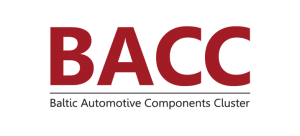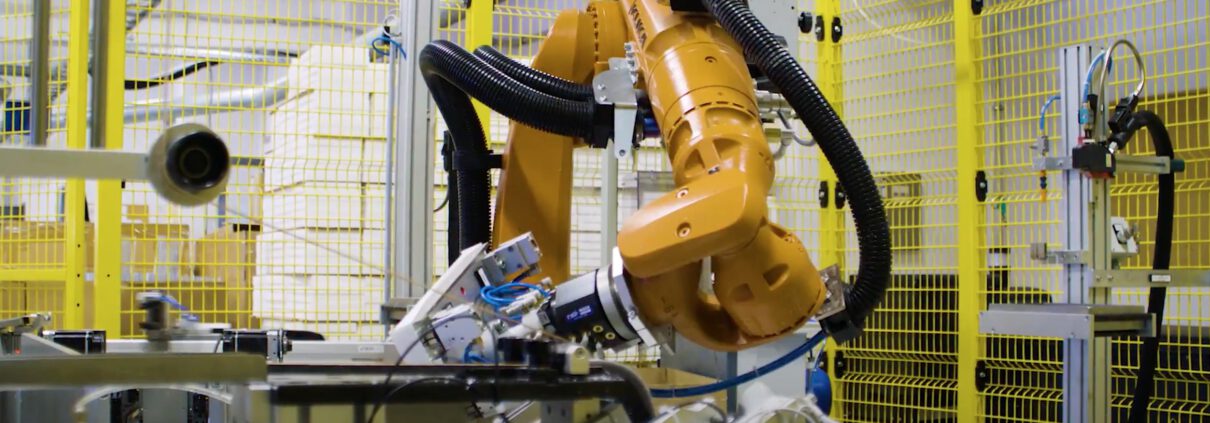The pandemic has disrupted not only the supply chains, but also the sales and expansion plans of many companies. On the other hand, Lithuania is positioned to be one of the EU member-states least-affected by Covid-19. After a sudden but brief halt, Lithuanian industrial companies have been gradually recovering in the third and fourth quarters of 2020. In the automotive industry sector, a similar dynamic can be seen: some companies are experiencing difficulties, but there are also companies in which turnover has increased significantly and even exceeded the numbers for the third quarter of 2019. It is forecast that the turnover of BACC member-companies and of Lithuanian automotive sector companies will decrease about 10% compared to 2019, but it is worth noting that this is one of the smallest decreases in turnover in this sector in all of Europe.
Vytautas Mazuronis, head of sales for the Middle East and Africa at UAB Baltic Filter, a maker of automotive filters, says that orders have been lined up until about the middle of December. Of course, assuming there are no force majeure events, which remains a real possibility. In recent months, the company was able to keep its clients and even attract new customers. He says that supply processes in the spring were slowed by transport-related problems and export volumes decreased by up to 10%, but he is quite optimistic regarding the planned annual results. At present, companies tend to seek shorter supply-chain solutions, to fill orders as rapidly as possible. The current situation is favourable for Lithuanian companies because EU automotive sector companies see the positive price-performance ratio offered by Lithuania’s manufacturers and, instead of ordering from Asia, more and more often choose European manufacturers.
Tomas Kocius, General Manager of UAB Proton Engineering Lithuania, reports that at his company, “a recovery can be felt after the standstill”. The company’s operations directly depend on the main location in Sweden, where parts are made and then assembled in Lithuania. He says that it is difficult to make a forecast for 2021, but the company is fully prepared to continue producing for Scania and Volvo.
Evaldas Rimša, CEO of UAB Baltec CNC Technologies, a maker of precision mechanical components and provider of CNC milling and turning services, says that production and orders in the second half of 2020 have almost returned to normal.
Kristina Šarkinaitė, representing UAB Metec, also reports increasing orders and describes the current situation at the company as good. The company has hired additional staff to ensure timely order fulfilment. In terms of turnover, the company hopes to perhaps match last year’s total, if the pandemic does not disrupt operations. Šarkinaitė notes that clients have recently become more demanding, but the company has been able to meet clients’ fast-changing requirements and adapt to the current market situation.
Petras Kadziauskas, CEO of UAB Elameta, says that for the time being the company has sufficient orders and expects that a decline like what occurred in March and April will be avoided at least through the end of the year. September and October were noteworthy for the large number of orders received, but it is difficult to make a forecast for 2021. UAB Elameta cooperates with other BACC member-companies, UAB Hi-Steel and UAB Metec, and the companies depend on each other. Successful cooperation is expected in 2021, too.
Today’s recovery in the automotive sector can in part be explained by manufacturers in the European Union seeking to produce and register cars before the end of 2020, because strict CO2 emission standards will take effect from next year. In addition, seeking to avoid or at least reduce the risk of supply-chain disruptions, clients are increasing orders for BACC member-companies. The growing order volume demonstrates that BACC member-companies are competitive and make great products at attractive prices. The situation at BACC member-companies is quite stable, and it is expected to maintain the current acceleration as much as today’s situation allows.



